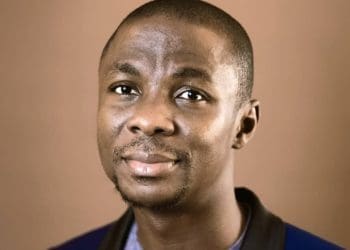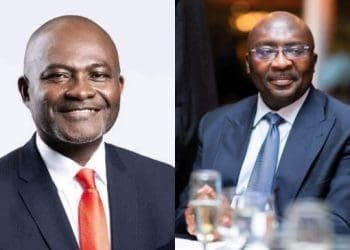The Kumasi – Accra road did not lead to camp. It led to silence. Sixteen young hearts beating with laughter, dreams, and the wild anticipation of youth were stilled in one merciless moment. The untold story of when possibility ended before it began—the day one future was buried.
Their names may never all make the headlines, but they were the rising sun of our nation, suddenly eclipsed at the noonday of life.
Seventeen, sixteen, fifteen. Ages that should have been busy making first mistakes, not their last journeys.
The bus driver, just 25, was barely out of the same youth bracket himself. Now, his story too is trapped in the wreckage.
And these young ones could have been the minds to carry our national solutions.
The teacher who would reform our colonial leftover education system.
The engineer who would finally solve our crisis.
The artist who would inspire a generation to dream higher.
The politician who would unite a nation divided by partisan politics. In their silence lies an unbuilt Ghana.
This tragedy is not far away; it could have been us.
It could have been our own child’s school bus, our church youth trip, our football club’s away game, or our nephew’s team heading for a competition.
That is why this wound must stay open in our conscience until it is healed with change.
I have many questions and too few answers. Was the bus roadworthy? When was it last inspected?
Did it carry the scars of neglect disguised under a quick coat of paint?
Was it fit to shepherd fragile lives over such a long distance? Or did we, once again, roll the dice with destiny and lose?
Our Kumasi-Accra Highway has become a long, weary wound across the country’s heart, a scar that never heals, a trap that keeps claiming its toll.
The potholes yawn like hungry mouths. Road signs are whispers when they should be shouts. Shouldn’t roads be the veins that keep a nation’s lifeblood moving?
There is a danger in thinking this is just “one of those accidents.” No, this is a symptom of a deeper sickness.
When road maintenance is postponed, when inspections are treated as paperwork rather than life-saving rituals, when defensive driving is treated as a luxury instead of a necessity, tragedies like this are no accident.
They are the predictable harvest of our negligence.
Our nation has perfected the art of mourning without mastering the art of prevention.
Every funeral convoy should be a policy meeting. Every wail should be a wake-up call.
But we grieve, we forget, and the wheels keep turning toward the next disaster.
Defensive driving is not merely a skill; it is an act of love.
It is the driver saying, I will protect every soul entrusted to me, even from the mistakes of others.
It means anticipating the unpredictable, slowing down when the road tempts you to speed up, respecting the weight of every human life behind you.
Why is this not a national campaign? Why are defensive driving principles not taught with the same urgency as basic literacy?
And to the government: roads are not seasonal projects to be fixed for political photo opportunities.
They are the stage upon which life plays its daily scenes, commerce, education, family and dreams. A bad road is not just an inconvenience.
It is a loaded gun lying in the middle of our national living room. How many more young bodies will it take before the Kumasi-Accra Road is treated as the emergency it is?
These 16 young lives are gone, but their absence must speak to no mediocrity in road construction and vehicle inspection, and driver training.
They must become the faces of a campaign that says: Not one more.
We cannot fold this tragedy into yesterday’s news and move on. We must build a culture where safety is not luck but design. Where buses are maintained like incubators of life.
Where drivers are not just licensed to operate a machine but commissioned to guard destinies.
And most importantly, where roads are kept like arteries carrying a nation’s heartbeat.
Somewhere along the Kumasi-Accra Road, the earth holds the echo of their laughter.
Let us not bury the lessons with them. Let this pain become policy.
The writer is the Director of Nobel Heights School, Exec. Sec of Women’s League Platform and Co-Founder of Women Leaders International, Ghana














